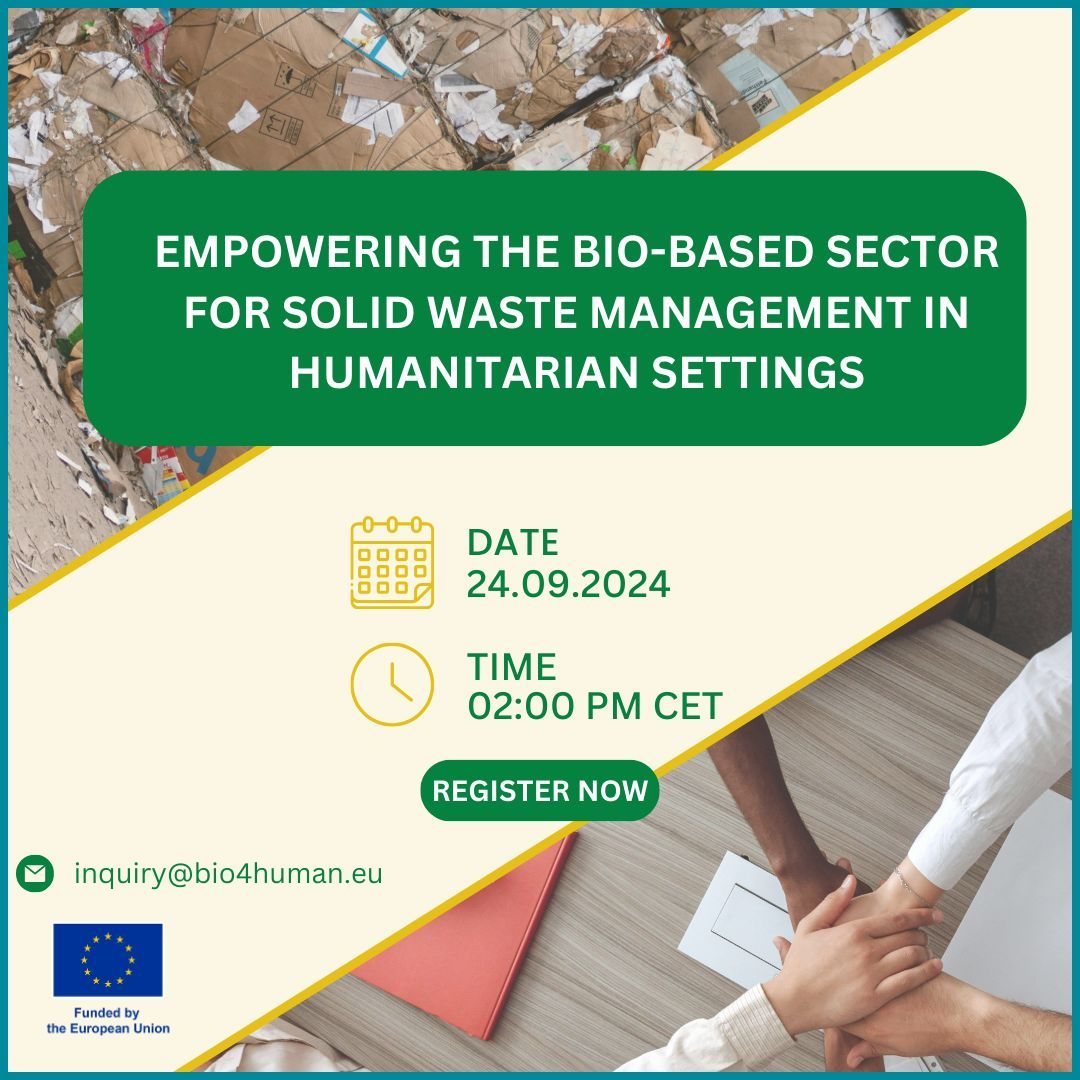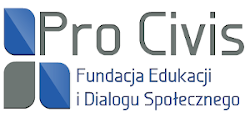Shaping tomorrow: Bio4HUMAN project soars to improve ways of addressing waste management challenges under humanitarian contexts
PRO CIVIS is one the 10 European consortium partners opening up a streamline of cooperation between humanitarian aid operators and the biobased sector that will identify the bio-based solutions for solid waste management applicable in various humanitarian settings. This will be done within the Horizon Europe project Bio4HUMAN. The ambitious mission of the Consortium is to manage environmental challenges linked with aid that is being shipped across various humanitarian settings.
To succeed in this endeavor, Bio4HUMAN partners will:
- Conduct a scoping exercise that will come up with a list of solutions as well as identify existing supply chain gaps in solid waste management. So far, there is no study on the topic. PRO CIVIS is the Leader of this important part of the Project.
- Perform life cycle assessments of the proposed solutions and evaluate their applicability with regard to
socio-economic and governance aspects.
- Explore if solutions fit the purpose of key solid waste management stakeholders and explore the possibility of their acceptance by the community, local businesses and local authorities. Bio4HUMAN will conduct a feasibility evaluation process in 2 African locations.
- Develop and disseminate a set of replication tools for humanitarian actors (funding and supporting organisations) that are willing to explore and later implement, innovative bio-based solutions to perform sustainably and offer circularity when delivering humanitarian aid.
The two African locations for assessing the feasibility of identified solutions are The Democratic Republic of Congo (DRC) and South Sudan, where humanitarian organisations from the consortium are already active.
In order to have a Europe-wide impact, a number of activities – including the creation of openly accessible guidelines, tools and materials – will be implemented to foster replication of the Bio4HUMAN identified solutions across Europe but also internationally.
The Bio4HUMAN project has received funding from the European Union’s Horizon Europe research and innovation programme.
Project information
- Full name of the Project: Identifying bio-based solutions for waste management applicable to the humanitarian sector
- Budget: €1 509 809.06
- Duration: 30 months (January 1st, 2024 – June 30th, 2026)
- Partners:
- Enspire Science Ltd (Israel)
- Instituto Tecnologico del Embalaje, Transporte y Logistica (Spain)
- Universidad de Cantabria (Spain)
- Fundacja Edukacji i Dialogu Spolecznego PRO CIVIS (Poland)
- Človek v tísni Ops (Czech Republic)
- WeLOOP (France)
- Irish Bioeconomy Foundation (Ireland)
- Polska Akcja Humanitarna (Poland)
- AIMPLAS – Asociacion de Investigacion de Materiales Plasticos y Conexas (Spain)
- BioEast Hub CR z. u. (Czech Republic).
More information on the Project could be found at the official website: https://bio4human.eu

